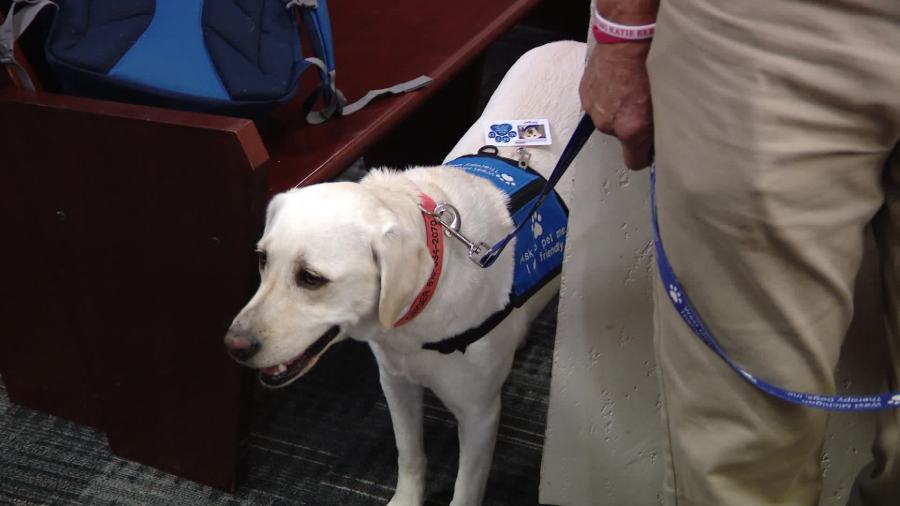
Governor signs law expanding use of therapy dogs in court
GRAND RAPIDS, Mich. (WOOD) — A bill expanding the use of therapy dogs in Michigan courtrooms has been signed into law.
Gov. Gretchen Whitmer signed the bill Monday, records show. It’s expected to take effect in the coming months.
The bill was first passed by the Michigan Senate in June 2023 and then sent to the House of Representatives, where it languished in committee for months. The House passed it in November 2024, the Senate gave it final approval Dec. 12 and it was sent to Whitmer’s desk Dec. 19.
Currently, court therapy dogs are only available to victims 15 years and younger, those with a developmental disability and vulnerable adults. Under the new law, they would be available to those 17 and younger.
The changes also allow for any therapy dog program recognized by the American Kennel Club to take part in the program.
A release from Whitmer’s office said 20 other states have similar laws.
Therapy dogs have been allowed in courtrooms since September 2018, supporting victims who testify in cases of child abuse, sexual assault and other crimes specific to vulnerable adults. While other counties have used the dogs in criminal cases, in Kent County, they are currently only used for civil cases involving abuse and neglect, like family court.
Michigan Court of Appeals Judge Kathleen Feeney, who spent decades serving in Kent County family court, advocated for the legislation’s passage. She says these emotional support dogs can make a huge difference for young people and vulnerable adults who have to talk about some of the worst trauma of their life.
“A lot of times these kids don’t get the opportunity to share their story and deal with their trauma of being physically abused, sexually abused, emotionally abused and otherwise,” Feeney said Wednesday. “Think about how difficult it would be to have that happen to you and come in a courtroom where there’s all these people watching you and the person who allegedly hurt you is sitting 10 to 15 feet away.”
“If they don’t have an opportunity to tell their story and to seek some justice for themselves, that trauma will haunt them for the rest of their lives,” she added. “All we’re talking about here is a tool, a courtroom support dog, a dog that’s trained to sit and just quietly sit there while the child pets this dog so they can tell their story.”
Because the dogs’ handlers are volunteers, the cost of the program is low.



